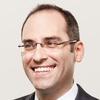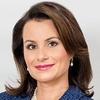Overcoming 103 Rejections for Biotech and Chemical Patents: Leveraging Recent Decisions and USPTO Guidance
Recording of a 90-minute premium CLE video webinar with Q&A
This CLE course will guide patent counsel in overcoming Section 103 rejections for biotech and chemical patents. Biotech and chemical claims continue to be embroiled in lead compound arguments and rebutting prima facie cases of obviousness based on, for example, ranges. The panel will review recent judicial and PTAB case law and offer insights to address 103 rejections. In particular, the panel will discuss the rise of inherency arguments in an obviousness context, as well as several Federal Circuit decisions reminding the PTAB and lower courts that conclusions of obviousness must be sufficiently supported and cannot be conclusory and merely stated to be based on "common sense."
Outline
- Current guidance on Section 103 patent claim rejections
- Lessons from recent court decisions
- USPTO guidance
- Distinct challenges for biotech and chemical inventions
- Overcoming 103 rejections in biotech and chemical patent applications
Benefits
The panel will review these and other key issues:
- What evidentiary support should counsel provide to bolster its assertion of validity/patentability?
- What tactics should patent counsel implement to overcome 103 rejections for biotech and chemical patents?
- How can patent counsel guide applicants during patent application drafting to reduce the likelihood of rejection?
Faculty

Dr. Amanda K. Murphy, Ph.D.
Partner
Finnegan Henderson Farabow Garrett & Dunner
Dr. Murphy focuses her practice on client counseling and patent prosecution for a range of clients. She prepares new... | Read More
Dr. Murphy focuses her practice on client counseling and patent prosecution for a range of clients. She prepares new patent applications, prosecutes U.S. and foreign applications, and represents applicants at appeals and oral hearings before the PTAB. She has experience in prosecuting inter partes and ex partes reexamination applications, reissue applications, and patent term extension applications for approved pharmaceuticals, including obtaining supplemental protection certificates in Europe.
Close
Thomas L. Irving
Partner
Finnegan Henderson Farabow Garrett & Dunner
Mr. Irving has 35 years of experience in the field of IP law. His practice includes due diligence, patent prosecution,... | Read More
Mr. Irving has 35 years of experience in the field of IP law. His practice includes due diligence, patent prosecution, reissue and reexamination, patent interferences, and counseling, including prelitigation, Orange Book listings of patents covering FDA-approved drugs, and infringement and validity analysis in the chemical fields, as well as litigation. Mr. Irving has served as lead counsel in many patent interferences.
Close
Jeffrey M. Jacobstein
Partner
Finnegan Henderson Farabow Garrett & Dunner
Mr. Jacobstein focuses on strategic client counseling, including due diligence, patent prosecution, and post-grant... | Read More
Mr. Jacobstein focuses on strategic client counseling, including due diligence, patent prosecution, and post-grant proceedings, with an emphasis on biotechnology and the life sciences. His experience includes prosecuting and appealing applications within the USPTO, as well as post-grant proceedings and larger portfolio management, licensing, and opinion work. He has conducted numerous evaluations for diligence, clearance, and freedom-to-operate assessments, and has extensive experience providing patentability, validity, enforceability, and infringement opinions.
Close
Joanna T. Brougher, Esq., MPH
Owner & Principal
BioPharma Law Group
Ms. Brougher is a patent attorney who focuses on all aspects of services related to patents in the areas of... | Read More
Ms. Brougher is a patent attorney who focuses on all aspects of services related to patents in the areas of biotechnology, pharmaceuticals and medical devices, including patentability opinions, due diligence, patent drafting, domestic and foreign patent prosecution, development and management of patent portfolios, and general client counseling during all phases of a product’s lifecycle, from concept to commercialization.
Her patent experience covers a variety of complex and innovative inventions involving small molecule drugs, biologics, cell-based technologies, compositions, drug formulations and drug delivery systems, immunotherapeutics, medical devices, diagnostic tests, nanotechnology, and immunology, particularly vaccines and antibodies. Ms. Brougher also has experience counseling clients on the Hatch-Waxman Act and is monitoring developments involving biosimilars under the Biologics Price Competition and Innovation Act.
